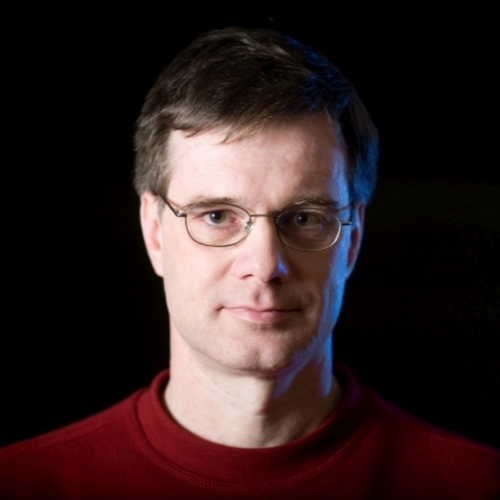System Thinker
For Wolfgang Lucht, the dignity of the human being is not possible without the dignity of nature

Who are we? What do we want to be? And how do we use our freedom? Those are not only questions for a philosopher, but also for a natural scientist who is following a holistic approach in his thinking. The physicist Wolfgang Lucht is an expert in earth system analysis and since July 1st 2016, he is also a new member of the German Advisory Council on the Environment (SRU) of the German government together with six other professors from different disciplines. In the coming four years, the council will be observing the state of the environment and the environmental policy measures that were taken from a scientific point of view, they will be critically commenting on those measures, but also warn if developments are going in the wrong direction. For Wolfgang Lucht the latter is often a disrespectful treatment of nature by society. He therefore developed a personal motto for his term of office: “The dignity of human being is not possible without the dignity of nature.”
Why we have to think in systems – Lucht’s position in the Environment Council
Even though the Environmental Council has not yet agreed on its focal points, Lucht already knows which issues he will put into play: “On the one hand I expect from our political leaders that the energy transition is going to be further developed with all necessary strength.” In switching to renewable energy sources as alternatives to coal, gas and oil Lucht sees a pioneer project for transformative environmental policies with which an industrialised country can demonstrate that a fundamental change is possible. “On the other hand I would appreciate it if the engagements of citizens were better integrated in environmental policy making. Actors with a weak voice who have important points to raise should get more attention.”
His most important matter of concern is to strengthen systematic thinking in the debate, so that the whole picture is looked at instead of singular problems. Lucht says: “We should not look at nitrogen, water and forest independently and thereby overlook their connections; we should not de-couple humans from the environment or see Germany detached from global interrelations.” Environmental, social and economic aspects have to be seen together in order to develop holistic solutions.
Applied to political practice, environmental policies should not only be understood as measures for environmental protection, but as an integral part of the whole political system. Lucht is convinced that within society there is a high level of support for the concept of sustainability; however the policy has to find ways to make sustainability financially feasible. “Somebody who accepts very low wages should not be surprised about low quality food whose production often does not fulfil environmental standards.” Environmental policies therefore need accompanying social-political measures, so that socially disadvantaged parts of the population are enabled to participate in the idea of sustainability – the great transformation is only possible with the society as a whole.
Why an induced collapse of the fossil-based energy sector makes sense
Alongside many other subjects, Wolfgang Lucht is investigating options of acting: What are the requirements to stop climate change? Where and how can we (still) counter-act current developments? “The most important factor determining the future temperature on Earth lies in the minds of the people”, Lucht says. His most important working tool is numeric modelling. By using computer models he and his team at PIK are researching not only bio-geochemical relationships, but for instance also the importance of expectation management. Amongst other things it sets cultural beliefs in relation to political and economic developments and their ecological outcomes. The findings demonstrate that beside positive visions of the future also negative ones can be very influential. Though the fossil-based energy sector is responsible for the majority of CO2 emissions there are still financial investments in this sector. “A simple appeal to the conscience won’t be enough. Without an profound economically-induced collapse of the fossil-based energy sector it is very unlikely that we will be able to fulfil the climate agreement of Paris.” However if enough strong coalitions between providers of technological alternatives, environmental movements and long term political guidelines are brought into being it will become more and more likely that this sector implodes. “If a sector based on profit expectations is divested because its future is in doubt, this sector will sooner or later collapse.” And this would be beneficial as such a collapse could help to break free from unsustainable pathways. But it will only work if alternatives already exist as in the case of the energy transition.
Lucht identifies positive opportunities in the dismantling of sealed surfaces or in wind energy: “Even though wind turbines are not liked by everybody and even though they are sometimes poorly planned, they are still absolutely necessary for environmental policies and at the same time they are a corrigible and a temporal technical solution. If in 50 years solar technology has advanced further to a point that it can take over the energy production, wind turbines could almost be fully de-constructed.” This however cannot be applied to other environmental changes: If the temperature has risen beyond a certain bench-mark or a species has become extinct the clock cannot be turned back.
Why we need new forms of collaboration
The scientist still believes that the human induced environmental change can be stopped, but the influence of mankind on the planet is already very huge. “What we are facing is the challenge to deal with the achievements of our civilisation in a more responsible way.” In order to do so we need a dialogue between politics, science and society as well as more interdisciplinarity in science itself. Lucht states very clearly: “Today, whoever does not seek the advice of science is acting in an irresponsible way.” At the same time natural scientists, scientists from humanities and social scientists also have to seek each other’s advices as one discipline cannot work without the knowledge of the other anymore. This also requires new forms of academic practice: “For me the strength of university is based on two pillars”, the scientist says who has been teaching at HU since 2009, “on the one hand a good methodical foundation which can face complex research questions; on the other hand the ability of pooling knowledge which should not only happen at single institutes.
Current problems do not ask for individual disciplines or the division in different professorships. They need cooperation and places where co-working can be developed.” Lucht perceives the IRI THESys as such a place. “Since its foundation in 2013, THESys has been developed into becoming an integrative laboratory at HU where future issues are researched across faculties. In this way, the strength of future universities to a certain degree develops right here”, Lucht says. In this case we should not focus on negative future expectations, but on the positive ones.
Contact

Wolfgang Lucht
Email:
Prof. Wolfgang Lucht would have almost studied German philology or theology; however he eventually decided to study Physics at the Christian-Albrechts University in Kiel where he also received his PhD in 1993. Later he was postdoc and assistant professor at the Boston University and since 1999 he works at the Potsdam Institute for Climate Impact Research, currently co-chairing the research area “Earth System Analysis”. Since 2009 he holds the Alexander von Humboldt Chair in sustainability research at HU, in 2004 he also started the professorship Biosphere Dynamics and Earth System Research at the University of Potsdam. Starting 1st of July 2016 Wolfgang Lucht has been appointed as member of the German Advisory Council on the Environment.


